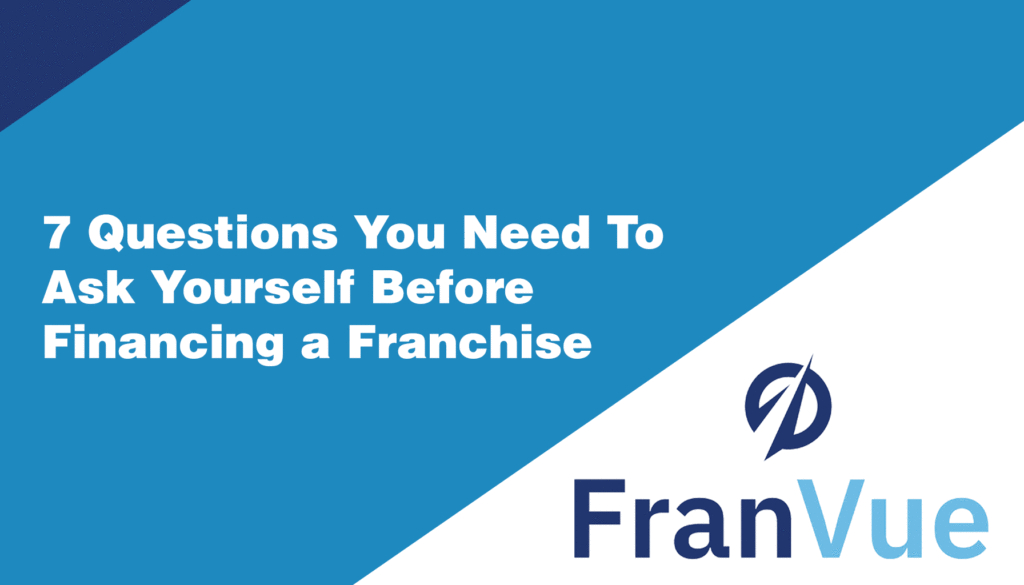Many people looking to open a franchise don’t have a huge amount of money lying in the bank to start the business. But if you are facing the same problem, don’t think that you cannot own your dream franchise due to a lack of startup funds.
Actually, there are multiple options you can consider when it comes to financing your franchise. But before getting started, you need to ask yourself the following questions to know which of these options is the best for you:
1. How Much Is My Total Budget (Both Business and Personal)
Sure, you already know how much the franchisor wants to collect as the initial franchise fee. However, it is also important to set aside money for business expenses, such as rent, overhead, inventory, business licenses, and payroll (employee and freelance help). Your budget should also include your own salary and plan for unexpected expenses that may come up.
There’s no guarantee that you will make a profit in the first few months of beginning your franchise (as a matter of fact, you should just aim to stay afloat), so calculate your budget for the first 12 months and make sure to consider all the expenses, including your own salary. You don’t want a situation where you go broke after putting all your money in a franchise business, causing you to close it or sell it off.
2. When Can I Expect the Business to Become Profitable?
It’s difficult to know the exact time the business will start raking in profits, but you can at least estimate how long it may take based on the experience of other franchisees. So, you need to speak to many franchisees, so you can come up with a realistic budget.
Since you will have to be paying back a business loan for a long time, it’s important that you make the right choice. Take time to evaluate your financing options and compare different lending programs or banks to make sure you select one that suits your needs.
3. How is My Credit?
It is easier for people with good credit to secure a small business loan. If you don’t have a great credit score, you need to start working on improving it immediately so that you will have a better score within a year or two. If you intend to get a loan for your franchise business, ensure that you have all your financial documents (including your personal financial statements) together to make it easier for you to apply for the loan.
4. Do I Have Any Savings?
If your answer to that question is yes, that’s great. If you are not planning to get a loan, begin to save money now and determine when you will be ready to start the business. You can also consider taking out your retirement money as long as you promise to repay it before retirement.
5. How Much Is My Net Worth?
Your net worth is one of the things a potential franchisor will consider when determining whether or not you are a great fit to become a franchisee. Net worth is what’s left when you subtract your assets from your liabilities at any point in time. In other words, it is what you will remain with after deducting all your debts from your assets.
Based on this number, franchisors can tell how well you were able to manage your finances – and how good you will be at managing the resources of your franchise business.
If your net worth is high, it tells franchisors that you don’t just pursue any business opportunities you see, and this will make them want you more.
6. What Are My Financing Options?
As we have said earlier, not everyone who wants to start a franchise has the money to run the business. Even if you have the funds, you may still want to get a loan to save money and avoid a cash crunch. Fortunately, there are a lot of funding options you can choose depending on how good your credit is.
- Franchisor Funding: When you are looking to buy a franchise, the first step is to ask whether the franchisor provides in-house funds to entrepreneurs. While some franchisors may help finance a part of the initial franchise fee or money that you can use to buy or borrow equipment, others may partner with independent third parties offering franchise financing. However, you should not just opt for your franchisor funding. It’s important to first compare the interest rate to that of other loans before making your decision.
- 401(k)/IRA Business Financing: If you have money saved in a retirement account like an IRA or 401(k), you can also borrow from the account to open a franchise or small business without requesting a distribution or applying for a loan. To be able to use this option, you need to have a 403(b) or a 401(k), Keogh, SEP, TSP, or a traditional IRA account.
- Line of Credit: You can also consider getting a line of credit from your bank. This allows you to get cash when you are in need of it instead of receiving a huge amount of money at once.
- SBA Loan: Another option you may explore to fund your franchise is an SBA loan. The Small Business Administration (known as SBA) partners with banks to provide low-interest rates to franchisees and small business owners.
7. Would I Like to Give Up Control to Investors?
Collecting money from an investor means they will have equity in your business and will therefore be able to influence some aspects of your business operations.
You can take this route to get cash injection if you are okay with having a business partner. However, if you don’t want an investor to have too much say in your business, you should be clear about your expectations regarding control right from the start.


